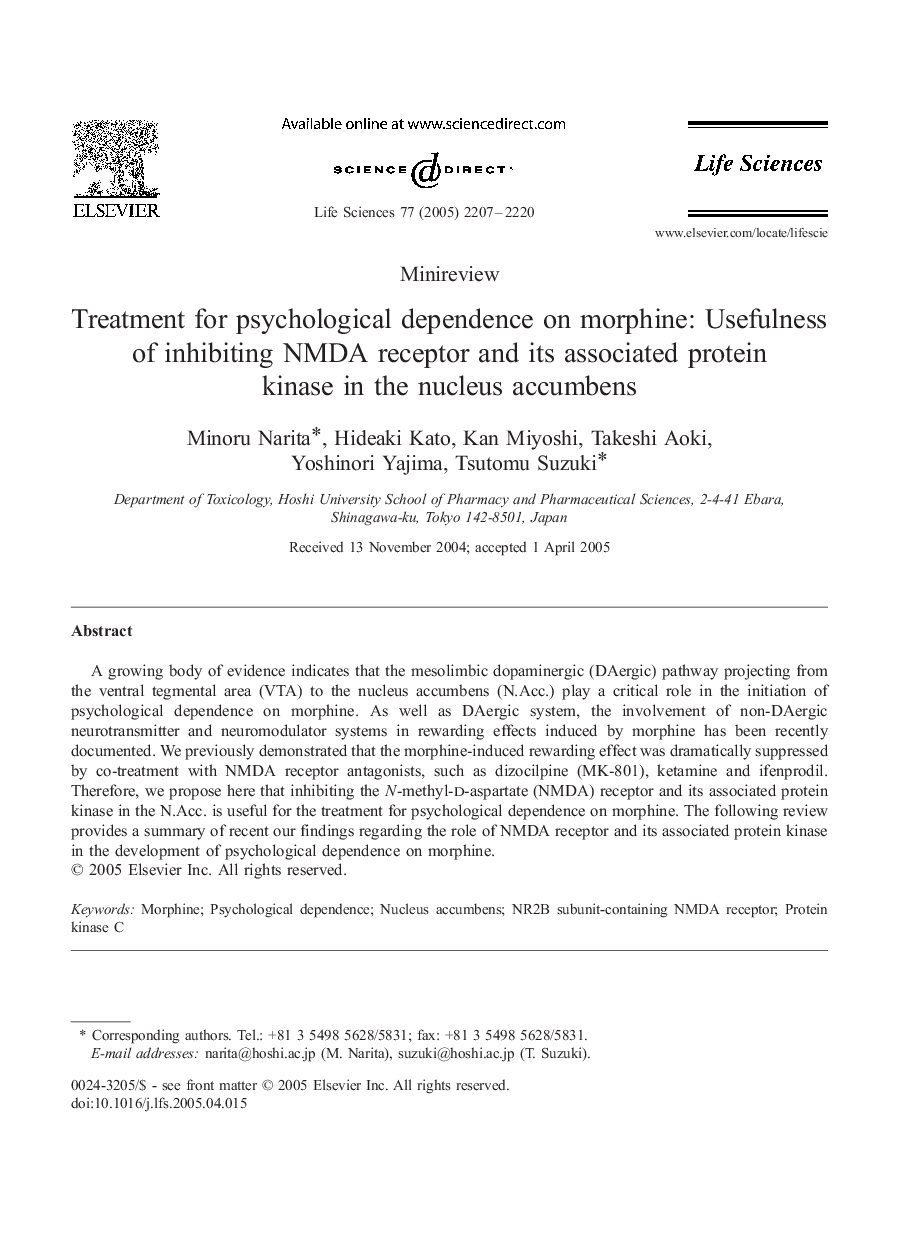| Article ID | Journal | Published Year | Pages | File Type |
|---|---|---|---|---|
| 2554989 | Life Sciences | 2005 | 14 Pages |
A growing body of evidence indicates that the mesolimbic dopaminergic (DAergic) pathway projecting from the ventral tegmental area (VTA) to the nucleus accumbens (N.Acc.) play a critical role in the initiation of psychological dependence on morphine. As well as DAergic system, the involvement of non-DAergic neurotransmitter and neuromodulator systems in rewarding effects induced by morphine has been recently documented. We previously demonstrated that the morphine-induced rewarding effect was dramatically suppressed by co-treatment with NMDA receptor antagonists, such as dizocilpine (MK-801), ketamine and ifenprodil. Therefore, we propose here that inhibiting the N-methyl-d-aspartate (NMDA) receptor and its associated protein kinase in the N.Acc. is useful for the treatment for psychological dependence on morphine. The following review provides a summary of recent our findings regarding the role of NMDA receptor and its associated protein kinase in the development of psychological dependence on morphine.
